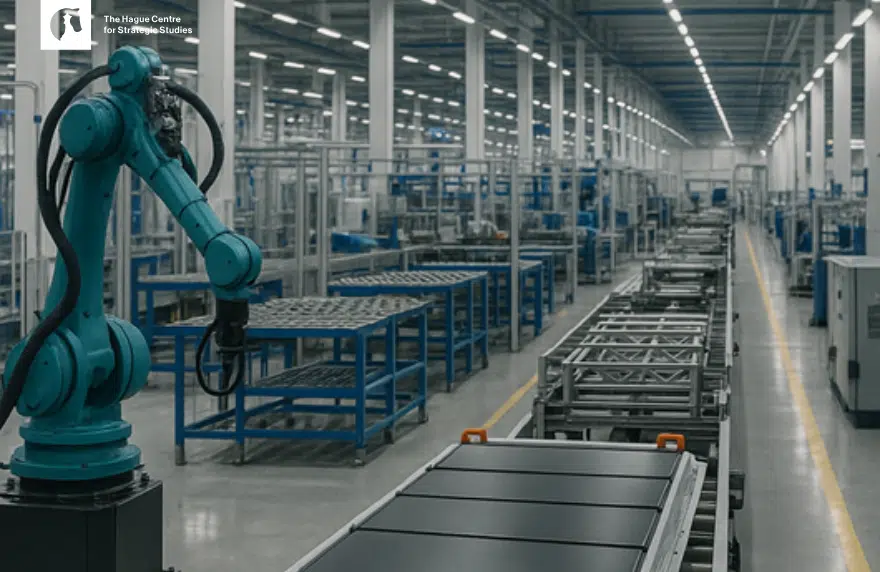Batteries are central to the EU’s transition to a low-carbon economy. The effective and secure scale up of batteries in the EU hinges on de-risked supply chains, from the extraction and processing of critical raw materials (CRM), to the production and, later, recycling, of batteries. Each type of battery depends on different combinations of CRM, with different types of vulnerabilities associated with their supply chains.
This paper written by Strategic Analysts Irina Patrahau and Ron Stoop analyses the geopolitical vulnerabilities arising from the three most widespread battery chemistries – Lithium Nickel Manganese Cobalt Oxide (NMC); Lithium Ferro Phosphate (LFP); and Sodium Ion Batteries (SIB) – on two timelines, 2025 and 2030.
It leads to three main takeaways and associated recommendations for EU-based policymakers and industry actors.
- The NMC market brings opportunities to EU manufacturers post 2030, even though from both a material supply and a manufacturing perspective the 2025 situation remains vulnerable. To bring more certainty and trust in the EU market, policymakers and industry should ensure that the Critical Raw Materials Act strategic projects on the NMC supply chain move forward as soon as possible.
- LFP batteries are emerging as a more affordable chemistry than the NMC, but current supply chain vulnerabilities and the limited efforts to address them point to continued geopolitical challenges for European manufacturers. Policymakers and industry actors should invest in risk mitigation measures for the LFP supply chain, including domestic EU projects and partnerships with other suppliers on both the supply chain resilience and circularity.
- The SIB battery chemistry is a nascent and promising technology that brings notable opportunities for the EU, but significant investment is needed to reach full potential. Through investment in research and scale up SIB battery chemistries, the EU could gain a (co-)leadership position in this emerging market.
Authors: Irina Patrahau and Ron Stoop
Cover photo: AI Generated






